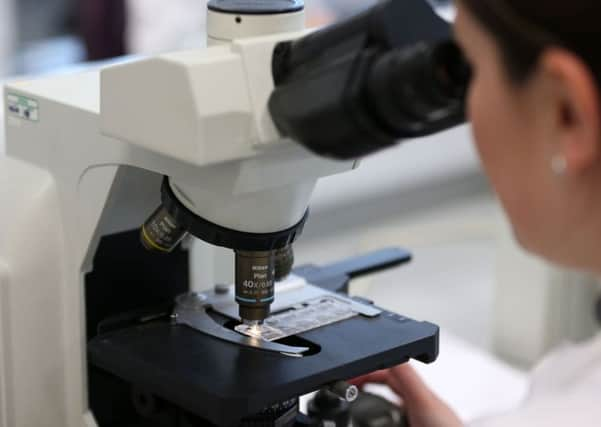'˜Three-parent' babies given go ahead by regulator


The historic decision by the Human Fertilisation and Embryology Authority (HFEA) aims to eliminate potentially fatal inherited diseases, which are passed down from the mother to the child.
Scientists at Newcastle University developed the new treatment where IVF children receive a tiny amount of DNA from an egg donor, as well as their mother and father.
Advertisement
Hide AdAdvertisement
Hide AdThe first patients could be given the therapy next spring, and the first babies with three genetic parents could be born by the end of the year.
However critics warned that the decision could open the door to further genetic alterations.
HFEA chair Sally Cheshire said: “Today’s historic decision means that parents at very high risk of having a child with a life-threatening mitochondrial disease may soon have the chance of a healthy, genetically related child. This is life-changing for those families.
“After a lot of hard work and invaluable advice from the expert panel, who reviewed the development, safety and efficacy of these techniques over five years and four reports, we feel now is the right time to carefully introduce this new treatment in the limited circumstances recommended by the panel.”
Mitochondrial replacement therapy (MRT) involves removing faulty parts of the cell and substituting healthy versions from a donor.
Clinics will be able to apply for licenses from the fertility regulator on a patient-by-patient basis, with around 3,000 women likely to qualify.
Prof Adam Balen, chair of the British Fertility Society said: “This marks a momentous and historic step and we hope families next year will begin their journey to eradicate these genetic diseases.”
Ethics campaigners raised concern that the technique might have worrying consequences.
Advertisement
Hide AdAdvertisement
Hide AdDr Calum MacKellar, director of research of the Scottish Council on Human Bioethics (SCHB), said: “The acceptance of such procedures opens the door to a dangerous brave new future for humanity where further genetic alterations of human beings become inevitable.”
Dr Murdo Macdonald, a geneticist and policy officer for the Church of Scotland, said the benefits of the technology would not outweigh the potential risks to the child and to wider society.